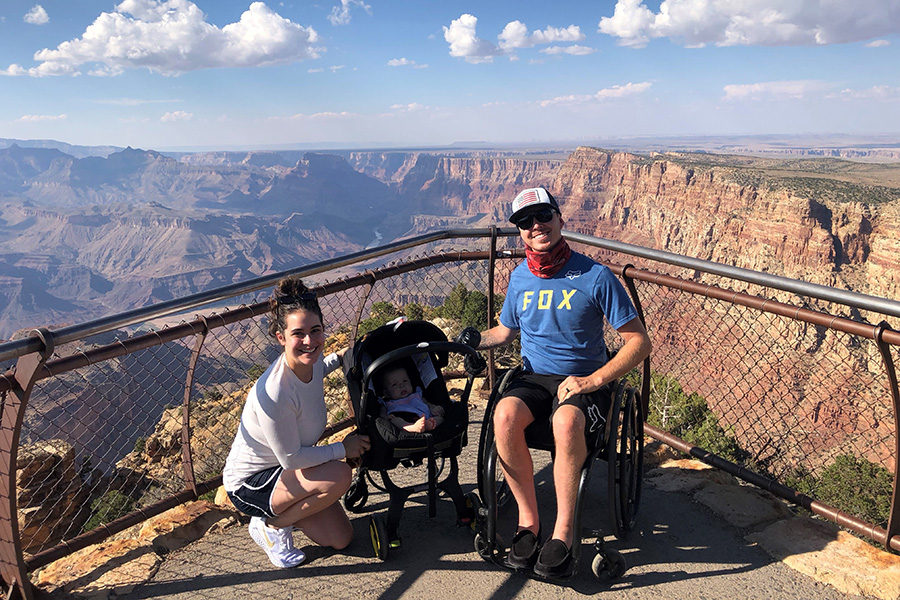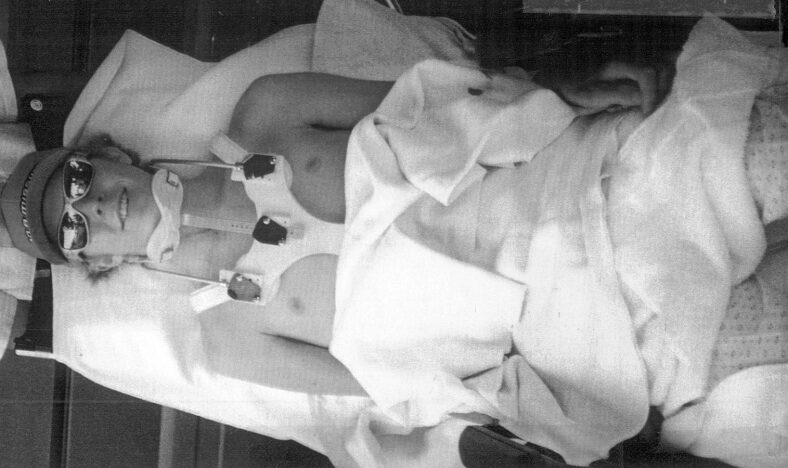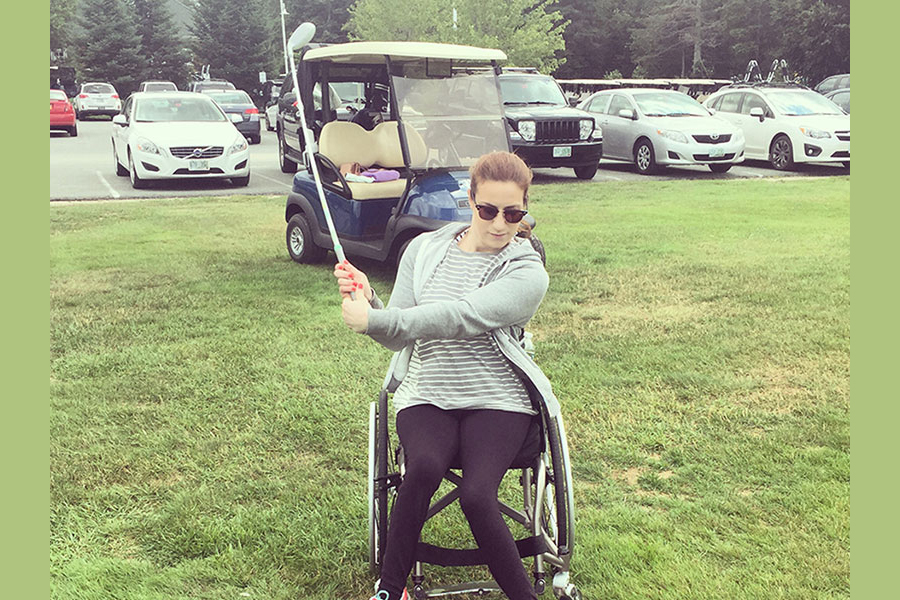A spinal cord injury has a long list of secondary complications that accompany the condition, none more randomly dangerous than Autonomic Dysreflexia.
Autonomic dysreflexia (AD) is the over-activity of the autonomic nervous system – the system in the body that controls functions you don’t think about, like heart rate, breathing and digestion. It can be a potentially life-threatening medical condition that affects people with a T6 level, or higher spinal cord injury.
AD most often occurs when there is a painful stimulus below the level of injury. Naturally, the body attempts to send distress nerve signals to the brain through the spinal cord, but these are blocked at the site of injury. This triggers a cascade of mixed neurological signals that confuses the body and brain, resulting in a dangerous spike in blood pressure.
Autonomic Dysreflexia Explained In More Detail
Since the distress signals cannot reach the brain, the body doesn’t respond to stimuli as it normally would.
- What happens then, is that a reflex is activated that increases activity of the sympathetic portion of the autonomic nervous system.
- The result is that the blood vessels narrow, which causes blood pressure to rise.
- The nerve receptors in the heart and blood vessels detect this rise in pressure and send a message to the brain.
- The brain then sends a message to the heart, causing the heartbeat to slow down and the blood vessels above the level of injury to dilate.
- However, since the brain is not able to send messages below the level of injury, blood pressure cannot be regulated.
- The body is confused and can’t sort out the situation.
When AD is triggered, there must be a quick and correct action or there may be serious consequence, such as a stroke.
Recently, I suffered extreme bouts of AD due to a gastrointestinal parasite I contracted while traveling through Mexico. The distress in my stomach triggered extreme AD and a rise in my blood pressure that caused unbearable headaches and nausea. Although the stomach bug made me feel terrible, it was the continuous AD that was most painful and alarming. So much so, that I was admitted to the hospital for testing and monitoring.
What to Do if Autonomic Dysreflexia is Triggered
If you experience any AD signs or symptoms, it’s important to act fast!
- Raise your head or sit up at a 90 degree angle and lower your legs if you can, to reduce blood pressure.
- Loosen or remove any constricting clothing
- Check your blood pressure every few minutes.
- Try to locate and remove the distressful stimuli.
- Look for the most common causes, like bladder irritation, urinary tract infection, a blocked catheter or overfilled urinary drainage bag.
- Bowel distention/bloating or irritated bowel, constipation or impaction, hemorrhoids or infections can also cause AD.
- Consider other causes like skin irritation, infections, cuts, bruises, abrasions or pressure sores, ingrown toenails, burns, sunburn and burns from hot water and tight or restrictive clothing.
- AD can also be triggered by sexual activity, menstrual cramps, labor and delivery, ovarian cysts, abdominal conditions (gastric ulcer, colitis, peritonitis) or bone fractures…or like in my case, a nasty parasite!
- Call your doctor or get to an emergency room as soon as possible.
Be In The Know
Your best defense against AD is a strong offense. Understand the signs and symptoms of AD, keep an info card about AD with you to help inform emergency room doctors and rescue teams about your condition and baseline blood pressure.
Knowing your baseline blood pressure beforehand can help detect AD if and when you experience symptoms.
Do your best to prevent a trigger with extreme self awareness… Always!
Cheers to health, happiness and no AD!
Please comment below with feedback, tricks or tips on how you manage your spinal cord injury. All input is welcome!
-Aaron









 I have c6 injury and I have lots of spasm in my whole body. What can you suggest to help?
I have c6 injury and I have lots of spasm in my whole body. What can you suggest to help?







Aaron,
Great information explaining really well. Thank you!